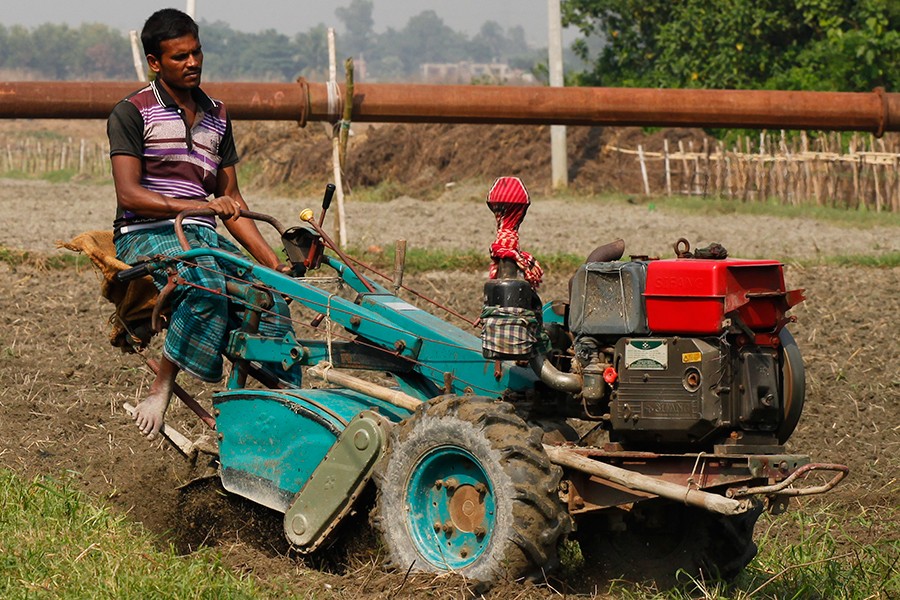The sectoral growth of agriculture, especially that of crop, in terms of the country's gross domestic product (GDP) dropped in the outgoing fiscal year (FY'19).
Experts attributed it to a steep fall in the paddy prices that hit hard the rural economy in FY'19.
The sectoral growth of agriculture (in terms of GDP) including crops, livestock and forests declined to 2.58 per cent in FY'19 which was 3.47 per cent in the last fiscal year, according to the Economic Review 2019 published by the finance ministry.
The growth of the crop sector in terms of GDP plunged to 1.75 per cent in FY'19 from 3.06 per cent in FY'18, a 1.31 percentage point fall.
However, the growth of other sectors like livestock, forests and fisheries remained almost static during the period.
Professorial fellow at the Bangladesh Institute of Development Studies (BIDS)
Dr Md Asaduzzaman told the FE that crops and vegetables comprise 70 per cent of the agriculture sector where rice is a major crop.
He said the rural economy has been hit hard by the falling paddy prices this fiscal year which has been reflected in the official data.
The farmers were selling paddy at Tk 400-Tk 600 a maund (38 kgs) against their production cost of Tk 920-Tk 1000 this boro season, he added.
The growth of the agriculture sector also declined in 2016 only because of low prices of major crops, Mr Asad said, adding that the low price of paddy directly put impact on the non-farm economy in the rural areas.
He said the prices of potato and onion plummeted down during the harvesting period between January and April this year which affected the farm sector and farmers.
Agri economist Prof Golam Hafeez Kennedy said the contribution of the agricultural sector to the country's GDP is also declining.
The contribution of the broad agriculture sector to the country's GDP declined to 12.7 per cent this FY which was more than 13.0 per cent in last fiscal year, he added.
Mr Kennedy said 'disturbance' in the crop sector can discourage the farmers for production as they have now many alternatives. "The policymakers should take it seriously from the food security perspective of the country."
He said subsidies for farmers and allocations for research on agriculture should be increased significantly.


